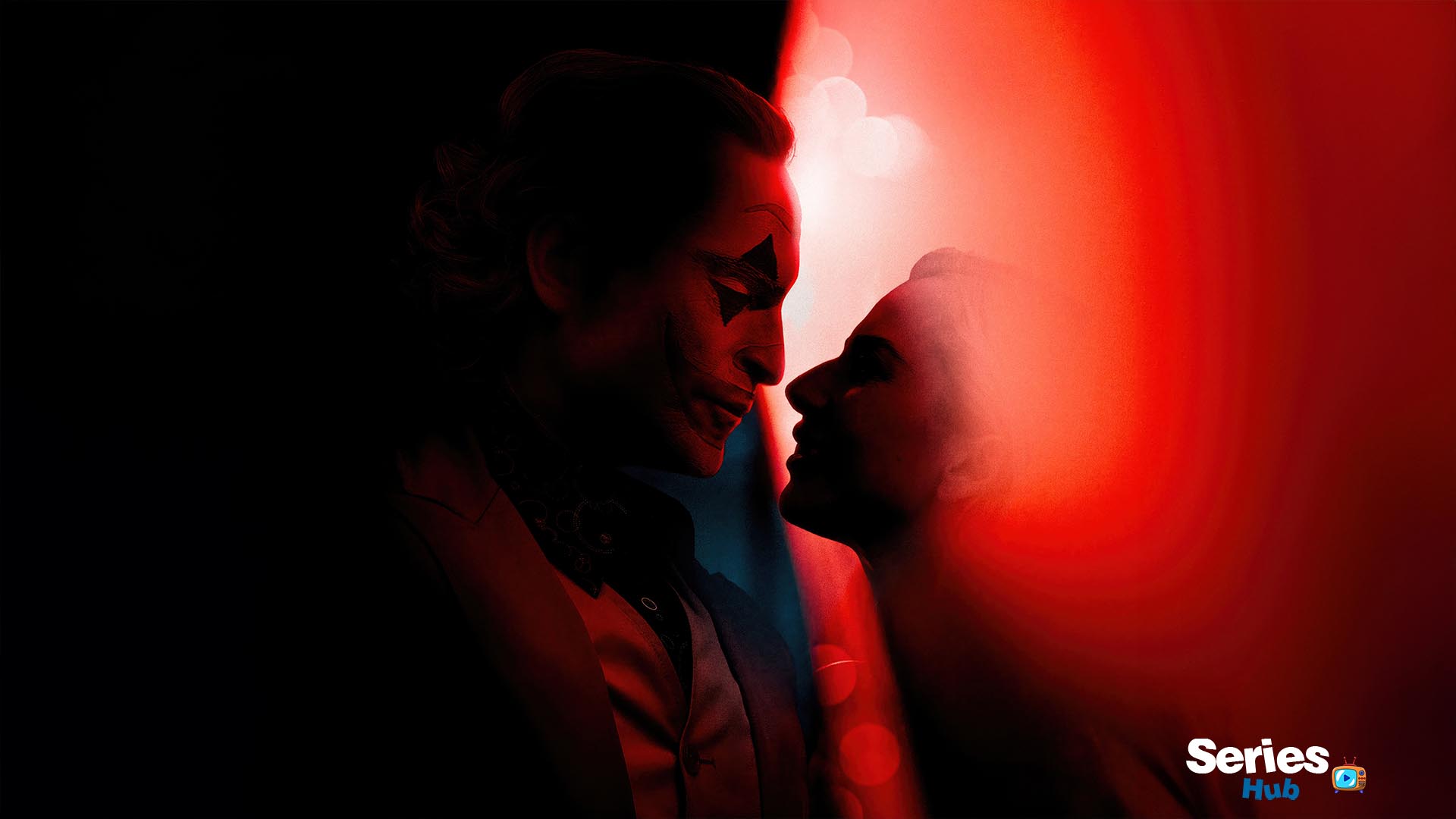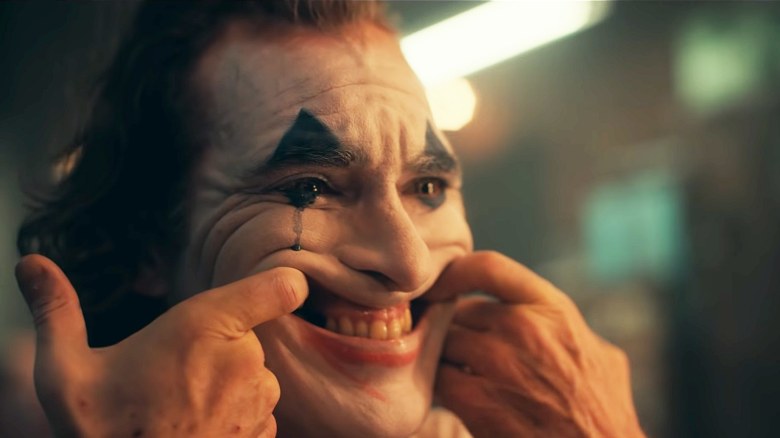
Joker (2019) is a totally-not-controversial, universally-agreed-upon film from beloved filmmaker Todd Phillips, starring Joaquin Phoenix as the Joker in the greatest acting performance of all time. It is a masterpiece unmatched by any other cinematic accomplishment of the past 100 years, and there is nothing to discuss about it because we all have the same opinion about it. Right guys? …Guys?

I considered using this space to discuss the crazy discourse surrounding this film over the past month, but decided against it. There is no shortage of think-pieces out there if you want to read about the Joker controversy or metatextual analyses of the film’s impact on film critics, so I invite you to go elsewhere if you’re looking for that kind of thing. I’m going to set all that aside and examine the film on its own merits, regardless of what people are saying about the film. I won’t deny that such discussions impact the way we view films, but we don’t all watch films for the same reasons, so I’ll try to keep subjective feelings out of it and look at Joker as objectively as possible.
During my preparation for this year’s awards slate, I caught up on a bunch of esteemed directors’ filmographies, from Terrence Malick to Bong-Joon Ho to Martin Scorsese. And with Scorsese’s upcoming The Irishman drawing such raves, I decided to check out some of his classics for the first time. And what a happy surprise that this homework doubled as preparation for Joker, which draws heavy influence from Marty, particularly Taxi Driver and The King of Comedy. The film’s plot and character design definitely takes a cue from those films, and also draws heavy homage to them at times by mimicking its iconic imagery. Those who haven’t seen either of those films (like the many teens and young adults sure to flock to this film) will not recognize these allusions and not care. And why not? Imitation is the finest form of flattery, and those who recognize the callbacks can enjoy the Easter eggs who those who don’t can experience them anew in a flashy modern vehicle. (The same is true of the Batman references; you could watch this film knowing nothing about the lore and be fine, but hardcore fans have plenty to recognize and smile about.) Scorsese would be the first to tell you that he shamelessly ripped off other filmmakers’ techniques for his films, so why should we deride Phillips for doing the same (and with Marty’s blessing, no less)?

The film has been criticized for sympathizing us with a psychopath, but I don’t fully agree. We definitely sympathize with his circumstances, but we are not meant to agree with his actions. I hate the idea that audiences can’t handle flawed characters, and it has led to a crisis of boring protagonists in the last few decades. We’ve gone from iconic characters like Travis Bickle and Patrick Bateman to one-note milquetoast characters like the Marvel heroes and every Dwayne Johnson action hero. Protagonists don’t have to be justified; they just have to be interesting!! Look no further than the Netflix obsession with serial killers (Mindhunter, The Ted Bundy Tapes, etc.): people are intrigued by the unsettling, and Joker delivers that in spades. This is a thorough exploration of a man being pushed to the edge of madness and taking drastic actions, NOT a manifesto on why we all ought to take after him.
I also reject the notion that the film has nothing important to say about modern society. I mean, did those critics and I see the same film?? The whole film sees Arthur kicked to the dirt by high society…while the rich and famous like Thomas Wayne thrive, he is left to fend for himself, with even critical health care services slashed to the bone. I mean Jesus, Phillips even hammers this home by giving Arthur a personal beef with Wayne thanks to the illegitimate son subplot…how much clearer could it be what he’s trying to say? We could easily see this same scenario playing out in the real world, as the availability of health care and mental health services continue to be a point of contention among politicians. And maybe, just maybe, Phillips is pointing out how these factors can contribute to mass shooters WITHOUT glorifying their actions! If you really walked away from this film believing that Phillips is using Joker’s violent actions for mere shock value and empty intrigue, I seriously doubt that you were paying attention.

Now I’m going to say something very, very controversial. Are you guys ready? Okay. Here we go…I think Todd Phillips is a pretty good director. He’s often derided as “the Hangover guy”, but am I the only one who thinks The Hangover is a damn good film? Like that comedy classic, Joker dabbles in the mystery genre a bit, withholding key information from the audience and doling it out judiciously. The gradual reveal of Arthur’s tragic backstory is so well-handled, always one step ahead of the audience and leading us to believe one thing when in fact the opposite is true. The build-up of tension is also masterfully handled, using audience foreknowledge to create suspense and enhance the visceral impact of a scene. The finale was very reminiscent of last year’s First Reformed, as our understanding of the protagonist’s true motives creates a natural sense of dread to make us squirm. The score by Hildur Guðnadóttir aids this cause perfectly, creating suspense and enhancing the creepiness of a moment whenever appropriate – and Phillips knows when to bring it in and out accordingly.
The script moves very well; there is no wasted space, with each scene feeling essential to the overall plot. And although many twists and turns occur, things never feel rushed; Phillips gives each moment the appropriate time needed to process new information and move forward with it. The character work of Arthur is also fantastic; he undergoes a clear transition from beginning to end, with each step of his journey pushing him just a bit closer to the edge until he finally snaps. Characters actually undergo change: what a wild concept! I especially loved the use of foreshadowing, which when coupled with the many red herrings and deceptions of the plot, are very rewarding to the audience. For instance, his imagined relationship with his neighbor is foreshadowed by his imagined meeting with Murray Franklin at a taping, and the reveal of his mother’s psychosis is consistent with her erratic behavior that we once wrote off as advanced age and/or the stress of poverty wearing on her.

While I did really enjoy the film, it is a far cry from perfect. The biggest problem is that there is very little levity despite very heavy subject matter. I’m a big believer that a film ought to balance out its sadness with something bright…even Scorsese’s darkest pictures were pretty damn funny. And Joker even has a few outs in that regard with the love interest and the relationship with the mother allowing for some lighter fare, but even these moments are bogged down by drama. This really makes the film feel monotone and longer than it is; despite the two-hour runtime I found myself checking the clock multiple times. It is also a bit too heavy-handed at times; Joker’s big climactic moment on the talk show just kinda rehashed everything we already knew about how he was feeling in plain terms. I also felt that the final scene was unneeded; the film could have ended with him dancing to the mob on the street and been just as effective. I do wonder how much studio interference there was, forcing Phillips to take the character in certain directions for future films, but for the most part it seems they thankfully gave him free reign which benefits the film immensely.
Okay, let’s not beat around the bush any longer: time to talk about Joaquin Phoenix. Incredible. Mesmerizing. Haunting. There isn’t much I can say about this performance that hasn’t been said already, but it solidifies him has one of the best actors of his generation. There is nary a scene or a shot that doesn’t involve him in some way, and he carries the film’s emotional load entirely upon his shoulders. Phoenix has a way of embodying a person completely, of inventing little tics and movements unique to them to make his performance that much more believable. His nervous laughter was especially incredible to behold; he managed to make it look truly painful and heart-wrenching, an actual step up from Heath Ledger’s unhinged but hollow laughter. I’m sure the merits of those two performances will be debated for decades to come, and I’m just gonna step out of the way of that whole discussion and say that both are phenomenal and better than just about anything else in their respective decades.

Is Joker a perfect film? No. Is it a masterpiece? Certainly not. But it’s still a damn good film, and one of the best superhero offerings of the decade. If it had balanced out its darkness with a little light-heartedness and used more subtlety in its handling of the themes, it might just have been perfect. As is, I certainly understand all the praise it has gotten and think the controversy surrounding it is rather silly and unwarranted. Joker does not glorify its protagonist any more than American Psycho does. (I would be more concerned with protecting Jimmy Kimmel than fortifying movie theaters with security guards at this point!) Joaquin Phoenix is transcendent and absolutely Oscar-worthy, giving a performance that rivals his best work (a feat I once thought impossible). For all the flak he gets from critics, Todd Phillips proves once again that he knows how to craft a quality and rewarding film that should endure the test of time. More comic book movies could do well to draw inspiration from cinema classics, and we ought to celebrate the genre being pushed in bold new directions instead of treading the same old ground.
All image rights belong to Warner Bros. Studios.
Comments (0)
No comments yet. Be the first to comment!
Leave a comment